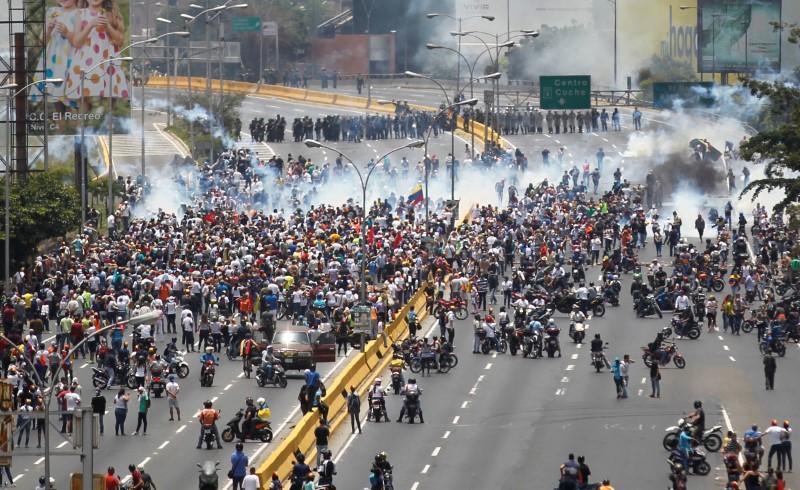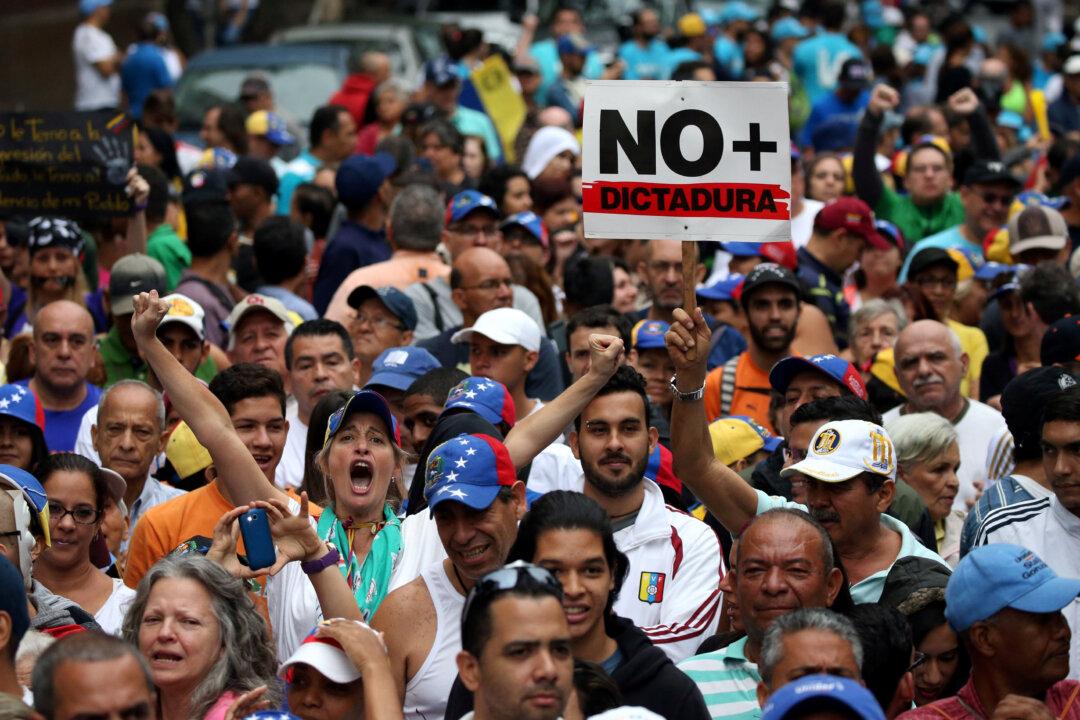CARACAS—Venezuela’s opposition was planning protests in each of the country’s 335 municipalities on Thursday, in a bid to strain the capabilities of security forces as unrest mounted in the volatile nation.
The oil-rich but crisis-shaken South American country has been convulsed by escalating protests over the last two weeks amid a punishing economic recession and accusations that socialist President Nicolas Maduro has morphed into a dictator.
In a worrying sign for Maduro, people in usually pro-government slums and low-income areas have blocked streets and lit fires during scattered protests this week. A crowd also broke through a security cordon at his rally on Tuesday, heckling at him and throwing stones while bodyguards scrambled.
Four people were killed during protests over the last week, authorities say. Opposition lawmaker Alfonso Marquina said on Thursday a fifth protester had died.
With momentum on their side, the main opposition coalition was urging Venezuelans to take to the streets across the country on Thursday in an effort to leave security forces too thinly spread to break up rallies.






